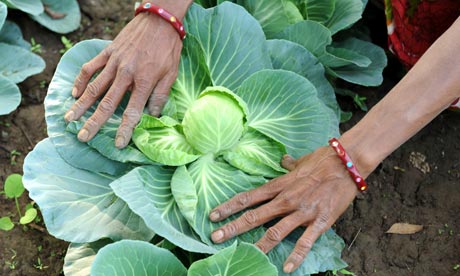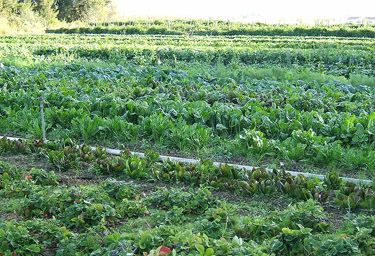
Catherine Brahic writes in New Scientist that
Organic farming could feed the world:
Numerous studies have compared the yields of organic and conventional methods for individual crops and animal products (see 20-year study backs organic farming).
Now, a team of researchers has compiled research from 293 different comparisons into a single study to assess the overall efficiency of the two agricultural systems.
Ivette Perfecto of the University of Michigan in the US and her colleagues found that, in developed countries, organic systems on average produce 92% of the yield produced by conventional agriculture. In developing countries, however, organic systems produce 80% more than conventional farms.
So developing countries don’t need Monsanto to feed themselves after all.
Quite the opposite: they can do much better with organic methods.
Perfecto points out that the materials needed for organic farming are more accessible to farmers in poor countries.
Those poor farmers may buy the same seeds as conventional farms use in rich countries, but they cannot afford the fertilisers and pesticides needed for intensive agriculture. However, “organic fertiliser doesn’t cost much – they can produce it on their own farms”, says Perfecto.
And if their crops fail, they can replant, because they can save seeds.
And if they don’t all use the same seeds, there’s less chance their crops
will all fail at once.
Getting certified as organic is
another story.
 Fewer pesticides for higher yields: if they can do it in west Africa…
Fewer pesticides for higher yields: if they can do it in west Africa…
 More profit and higher yields through organic farming in India
More profit and higher yields through organic farming in India
 Organic Farming Yields often Better Than with Agrochemicals
Organic Farming Yields often Better Than with Agrochemicals


